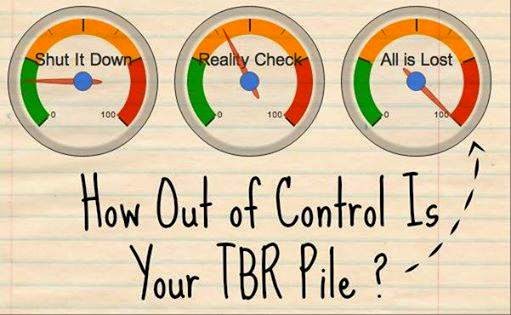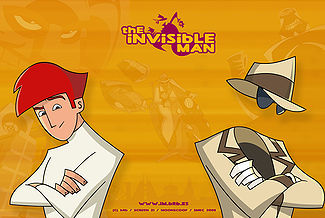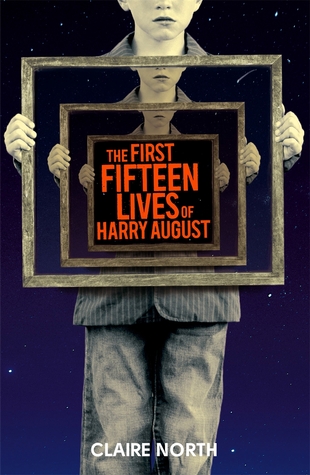
I am falling behind in my 1 book a week aim which is a shame. I seem to spend a lot of my days doing jigsaw puzzles, and then as I feel going outside once in a while is healthy, and interacting with real people is necessary, I seem to have used up all my anti-social time. It took far longer than it should have for me to come up with the idea of listening to audiobooks while puzzling. I thoroughly recommend it.
I have managed to read a few books lately though I haven’t posted any reviews in a while as I haven’t had much to say about them. However having recently finished listening to The Invisible Man by H.G. Wells, and finding it very different to my expectations, I have decided to recommence the reviews. I have had the audiobook version of The Invisible Man for several years, but haven’t got around to listening to it; the avid readers among you will no doubt understand the nature of a ‘To Be Read’ pile, it works the same with audio books, I seem to gather them faster than I listen to them.

The Invisible Man (1897) is one of the most famous sci-fi novels ever. It was written by H. G. wells and has innumerable films, TV series and comics based on it. Wells is also known for The Time Machine and The Island of Doctor Moreau which also have various media adaptations. Before listening to the book, this was pretty much all I knew. I had heard of the invisible man in the world of comics and superheroes and I vaguely remembered a film adaptation of The Time Machine that was a fun family friendly adventure. Consequently I was expecting something along those lines with this book; some of you will know that’s not what I got.

I listened to a free audiobook version of The Invisible Man downloaded from Librivox (link here). The narrator (Alex Foster) was fine; I have no criticisms. I have experienced audiobooks that were hugely enhanced by a great reading, this wasn’t one of them, but on the other hand he certainly didn’t detract from the story, he was perfectly listenable, which isn’t always the case with the volunteer lead readings you find on Librivox.
I’m very well behaved when reading or watching sci-fi with respect to the science. I am willing to suspend logic and reality to an extent to allow the authors to create the new world, and in fact I enjoy the logic of the world they create and generally will allow it to stand without question. After all if science could actually do it, it would be reality not sci-fi. I reviewed Replay by Ken Grimwood and touched on The First Fifteen Lives of Harry August by Claire North last year (link here). In Replay the science isn’t really attempted, and that’s OK, but I was highly impressed with the science element in The First Fifteen Lives of Harry August; I’ve yet to come across a better developed sci-fi world. In The Invisible Man Wells has also done a great job of explaining his scientific phenomena with a reasonable explanation of how to make something invisible, in fact this was one of the most satisfying parts of the book from my point of view.

Now to the story itself. As I alluded to earlier, The Inivisible Man is not a light fun adventure. It’s not even a slightly sinister or dark superhero book. It’s just dark and angry. The main character, the invisible man himself is called Griffin. When we are introduce to him he seems a rather harsh and grumpy however with my preconceptions I felt there would be reasonable justification for this later on. However as the book proceeds you are lead to like Griffin less and less. I clung on to the hope of a sort of redeemable anti-hero for a while but gave it up on that idea about half way through. Griffin is simply selfish, angry and brutish. You may think that is very well done by the author to build such a dislike about a character particularly when you are predisposed to like them, it must have taken very strong writing to create those emotions and I do agree to a certain extent. Griffin is a well developed character.
The main problem I had with the book is that non of the other characters in the book are particularly developed at all. There isn’t really anyone to like or root for. There is a tramp that is controlled by Griffin for a while. You would think you would feel some sort of support, or liking for the tramp but at most I felt a mild kind of pity. The tramp didn’t really have enough of a sense of character to really be noticed. Later Griffin holes up with an old acquaintance, Kemp, who when he realises Griffin’s brutality and unrelenting drive for complete domination, betrays Griffin to the Police. Griffin being angry at being betrayed and now hunted turns his anger on Kemp with the intent to kill. Even Kemp is hard to care about. I did support him in the sense that your enemy’s enemy is your friend, and Griffin was definitely an enemy by then, but there was very little emotion invoked on behalf of Kemp himself.
Overall I can’t say I liked the book, the writing style with a third person narrator I quite liked, the bits of science used to describe various phenomena were interesting, but without a likable, relate-able or redeemable character in sight it just felt like spending several hours in the company of and angry psychopath.

HG Wells was scientific but he distrusted the outcome of science and thought human nature would outsmart it.
So great advances have great drawbacks. In War of the Worlds the Martians are defeated not by mans ingenuity but by the common cold.
The Time Machine paints a grim future for humanity.
Today we partly see Wells vindicated already we have a antibiotic apocolypse looming and climate crisis.
Mordern depictions of a brilliant scientific triumph ring rather hollow when we look at the world.
LikeLike
That’s a great point, and it’s very much the science and the implications I appreciated in the book, I just wished I liked somebody in the book enough to care 🙂
LikeLike
The scientific characters of Wells are often pushy unlikable extroverts. We often meet that over confident type in science and buisness.
Those who think they know how to run the world, but in his stories they always trip up. Its only when we face our imperfections that we stand a chance of running things.
LikeLike